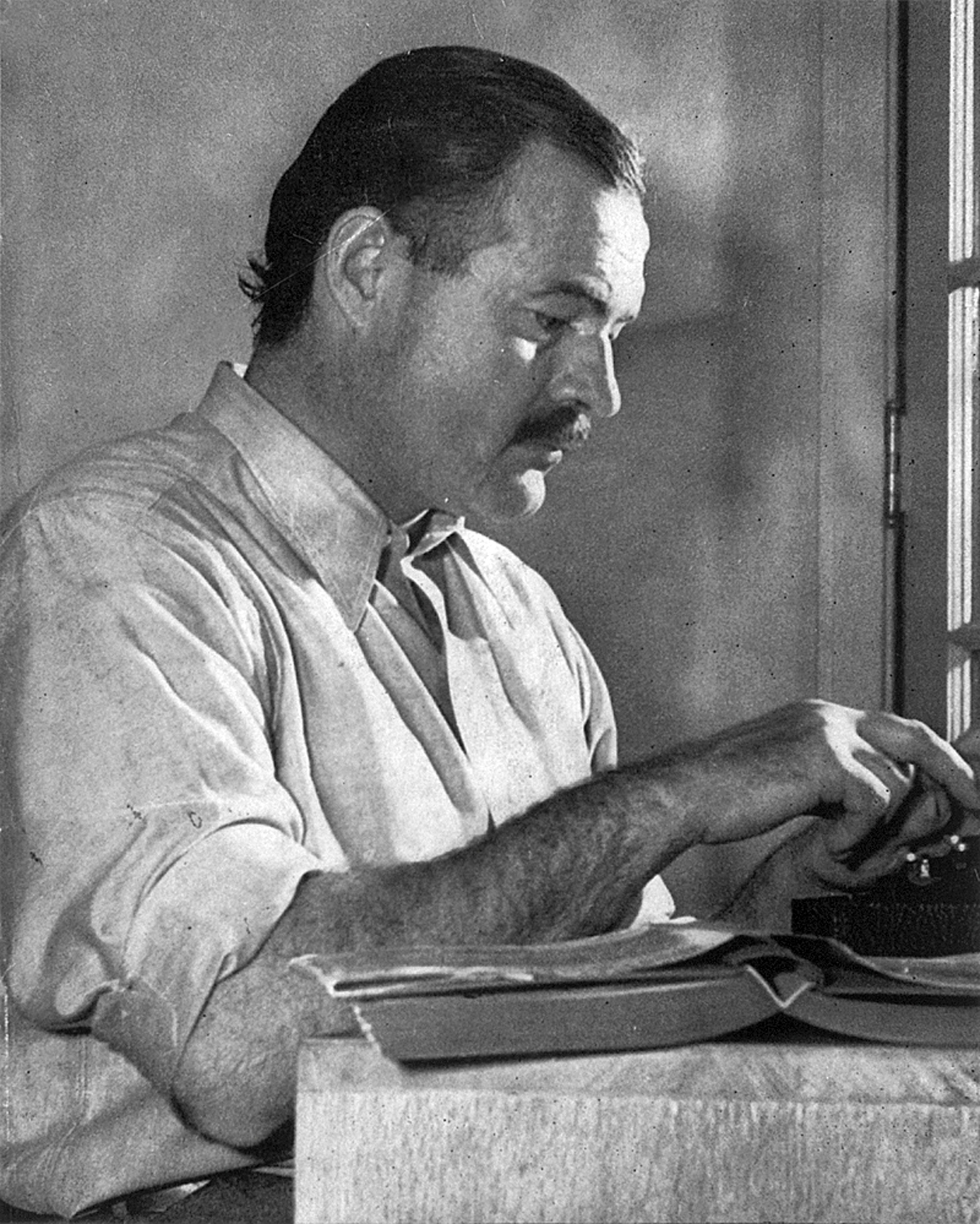Ernest Hemingway citations célèbres
Ernest Hemingway Citations
Le viel homme et la mer, 1952
“La mort est un remède souverain à toutes les infortunes.”
Mort dans l'après-midi, 1938
“Ça m'empêchera pas de le tuer, dit-il; tout superbe et formidable qu'il soit.”
Le viel homme et la mer, 1952
Le viel homme et la mer, 1952
“Dans tous les arts, le plaisir croît avec la connaissance que l'on a d'eux.”
Mort dans l'après-midi, 1938
Ernest Hemingway: Citations en anglais
Statement after seeing David O. Selznick's remake of A Farewell to Arms (1957).
Papa Hemingway (1966)
Renata and Colonel Richard Cantwell in Ch. 12
Across the River and into the Trees (1950)
“Being against evil doesn't make you good. Tonight I was against it and then I was evil myself.”
Pt. 1: Bimini, Section 4
Islands in the Stream (1970)
"Trout Fishing in Europe" The Toronto Star Weekly (17 November 1923)
Catherine and Henry discussing whether he should grow a beard, in Ch. 38
A Farewell to Arms (1929)
“Easy writing makes hard reading.”
As quoted in Paris Was Our Mistress (1947) by Samuel Putnam, p. 128
Notes on the Next War (1935)
A Letter from Cuba (1934)
Nick Adams of "Fathers and Sons" in Winner Take Nothing (1932)
"On the American Dead in Spain", New Masses (February 14, 1939)
Part 2, Ch. 5
Harold Stearns was a once-well-known New York writer and intellectual whom Hemingway knew when they were both living in Paris.
The Torrents of Spring (1926)
Letter to Arthur Mizener (12 May 1950); published in Ernest Hemingway: Selected Letters 1917–1961 (1981) edited by Carlos Baker
“I didn't marry her family.'
'Of course not. But you always do. Dead or alive.”
David and Colonel John Boyle in Ch. 7
The Garden of Eden (1986)
Source: The Dangerous Summer (1985), Ch. 13
And I said, "A glass of hemlock."
Pt. 2, Ch. 5
Papa Hemingway (1966)
Source: Across the River and into the Trees (1950), Ch. 1 (the opening paragraph of the novel)
Introduction to Treasury of the Free World (1946)
“It’s his sense of self-preservation.’ ‘The great Italian sense.’ ‘The greatest Italian sense.”
"Che ti dice la Patria?" in Men Without Women (1927)
One of the alternative endings to the novel, published in A Farewell to Arms The Special Edition.
A Farewell to Arms (1929)
Letter to F. Scott Fitzgerald (1 July 1925); published in Ernest Hemingway: Selected Letters 1917–1961 (1981) edited by Carlos Baker
